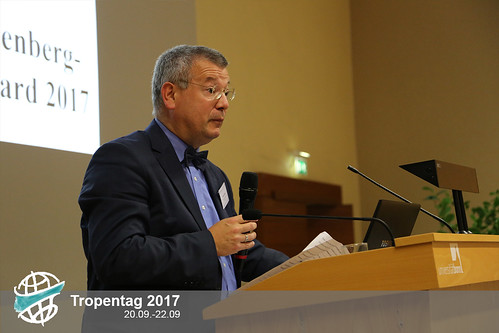Reply to comment
Young Scientists Win Award for Fight Against Hunger
Wed, 09/20/2017 - 19:53 — giulia.rotanodari “Genome based identification of heterotic pattern in rice”, Ulrike Beukert, University of Martin-Luther-University of Halle-Wittenberg
“Genome based identification of heterotic pattern in rice”, Ulrike Beukert, University of Martin-Luther-University of Halle-Wittenberg
Rice is one of the most important staple crops in the world. A lot of research has been conducted, but more investigations are needed in order to optimize land use by maximizing yield. Ulrike Beukert, a MSc. student at the University of Martin-Luther-University of Halle-Wittenberg, conducted an investigation on boosting yield by exploiting heterosis in rice. Results show that heterosis provides enhanced yield stability and increased abiotic and biotic stress resistance. His results will hopefully inspire further investigations into adapted varieties in order to improve the performance of rice cultivations worldwide.
“Adoption of Agro-ecological Farming Practices”, Sarah Luisa Senz, University of Hohenheim, presented by Doct. Moctar KanteBurkina Faso is facing severe declines in productivity due to unexpected metereological events and land degradation. In the face of rising food insecurity, a sustainable way to help famers to increase their yield was needed. Sarah Luisa Senz, from the University of Hohenheim, conducted an innovative project to promote agro-ecological farming practices in Burkina Faso. The farmer-to-farmer training encouraged the adoption of most suggested agronomic practices, such as the use improved varieties, intercropping, crop rotation and helped to reach marginalized households. As a result, yield doubled and farmers demonstrated their interest in restoring degraded land. In the final remarks of the presentation of Sarah's work, in order to improve the outcomes it is necessary to improve irrigation infrastructures, to ensure famers access to credit and gender equality.




